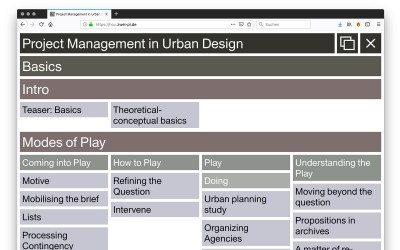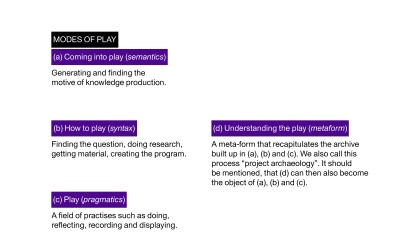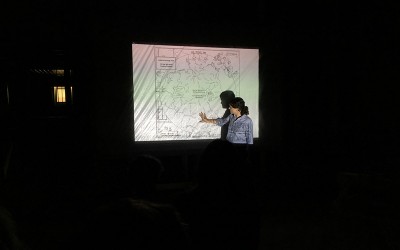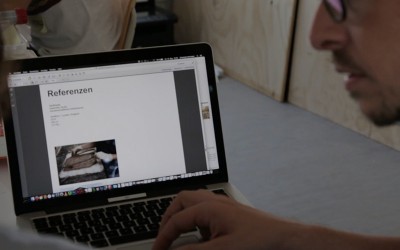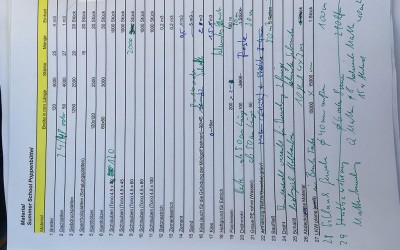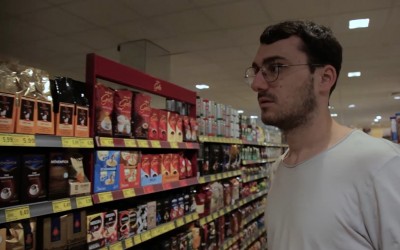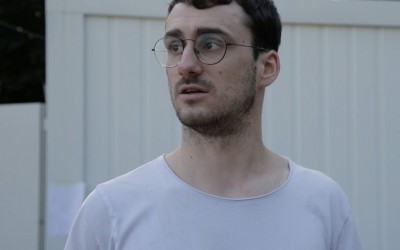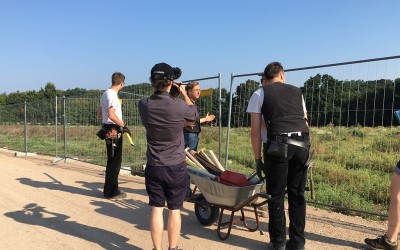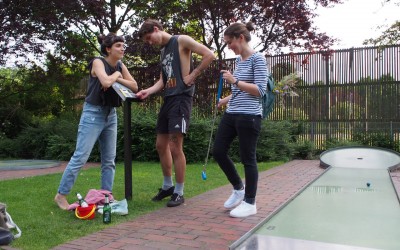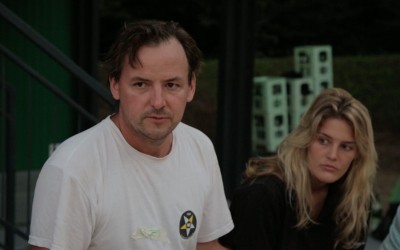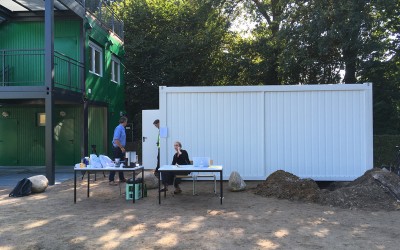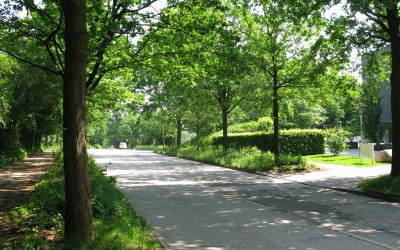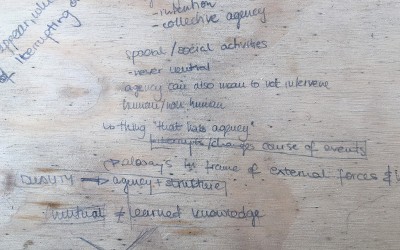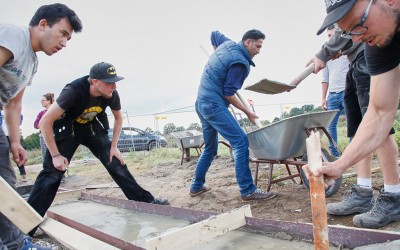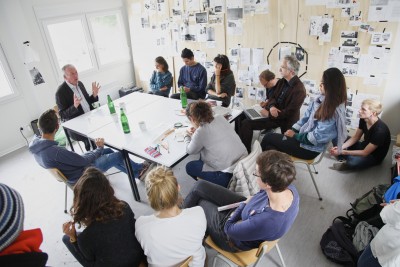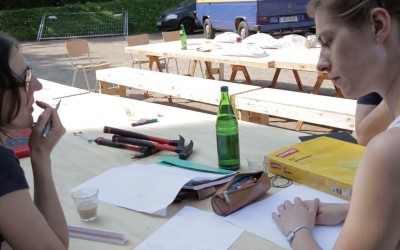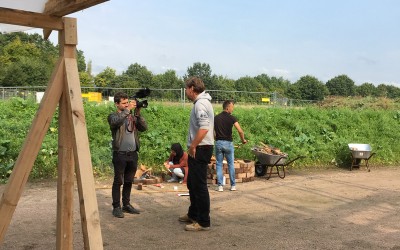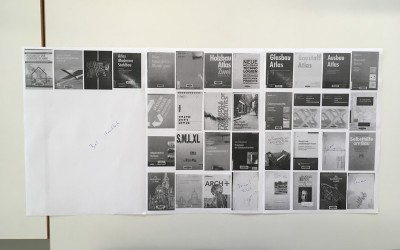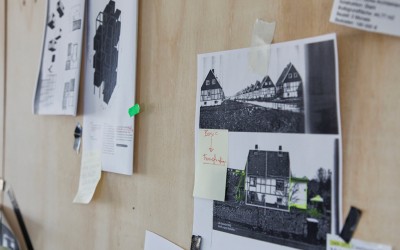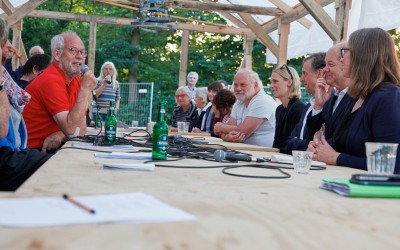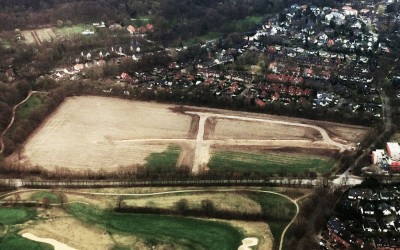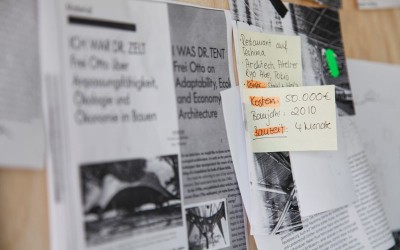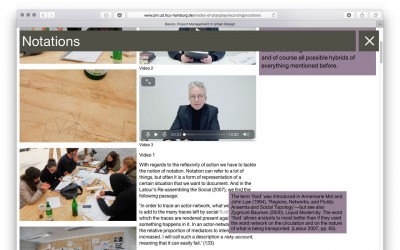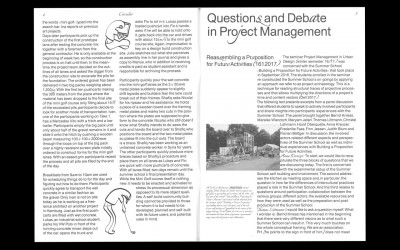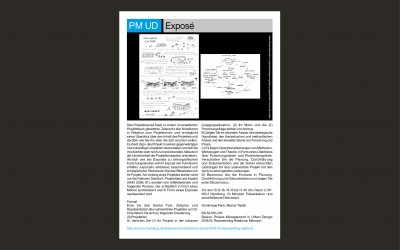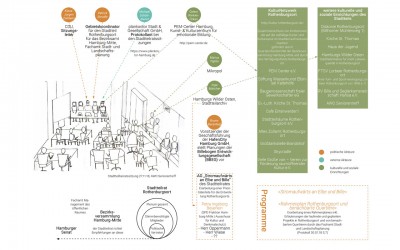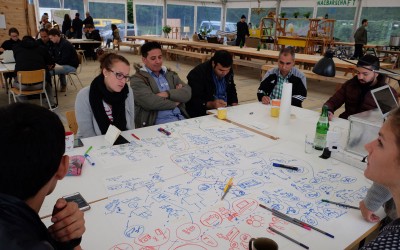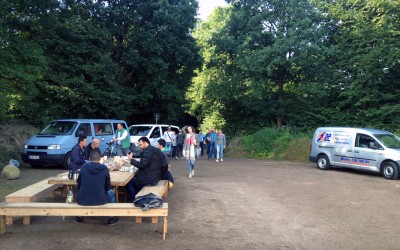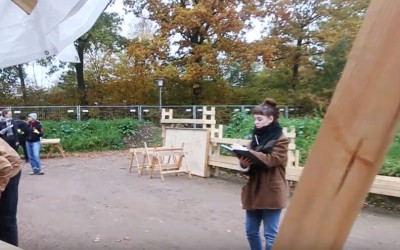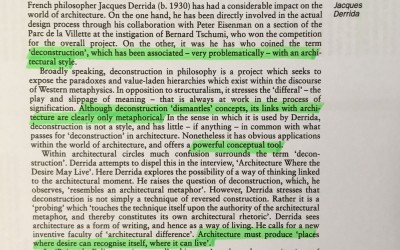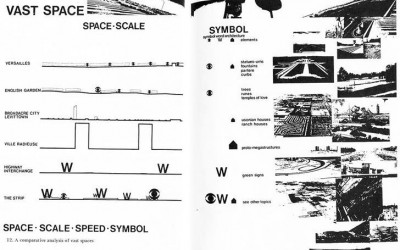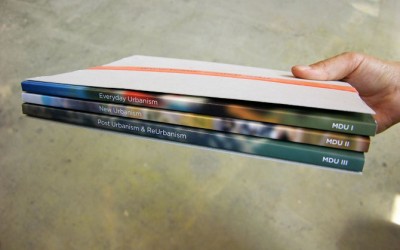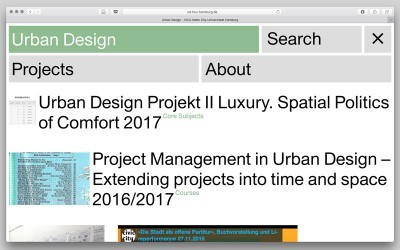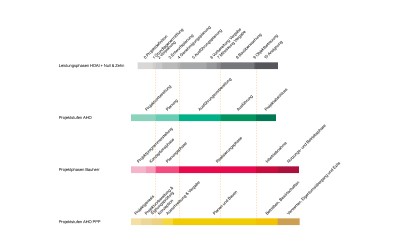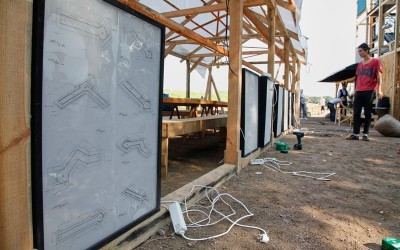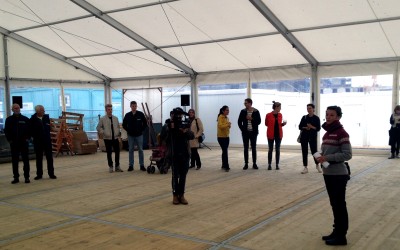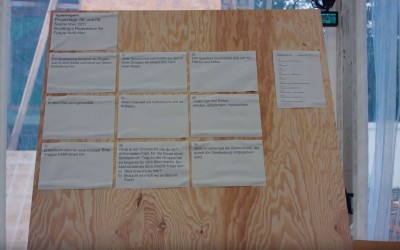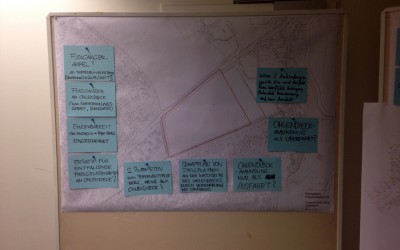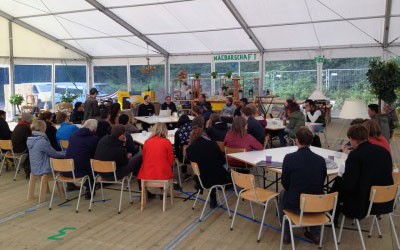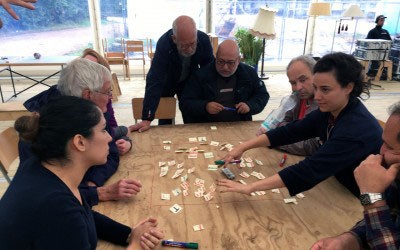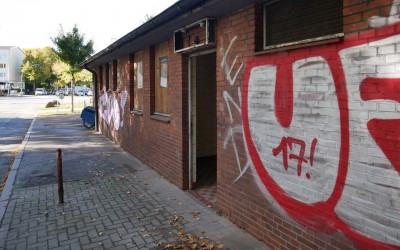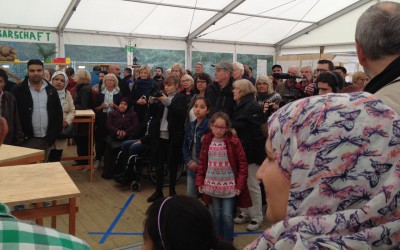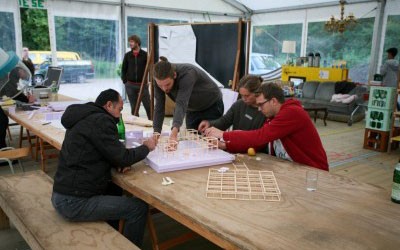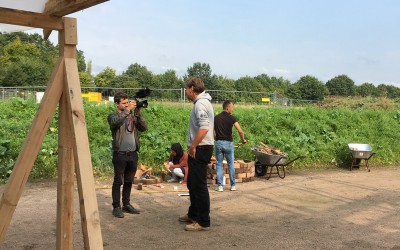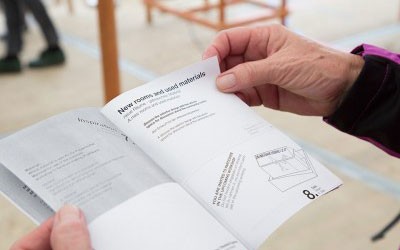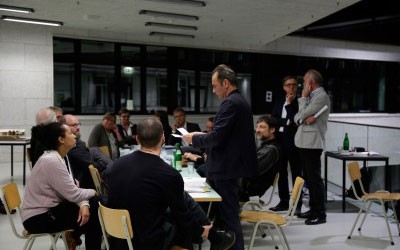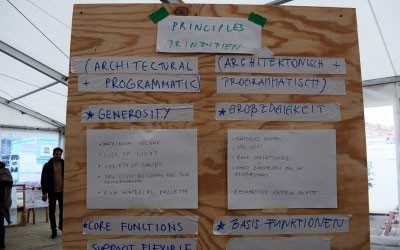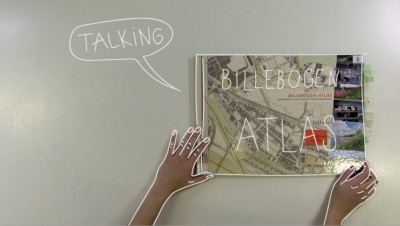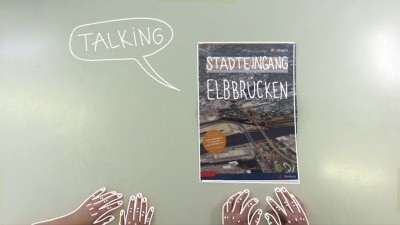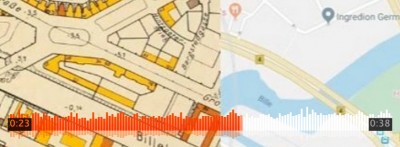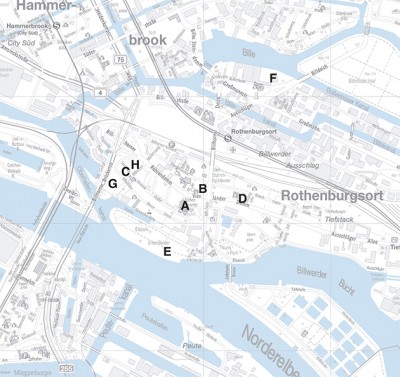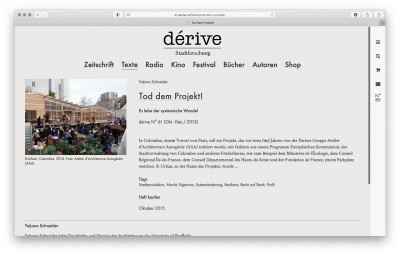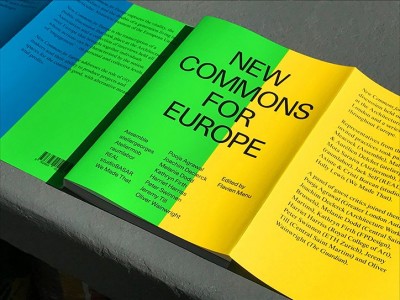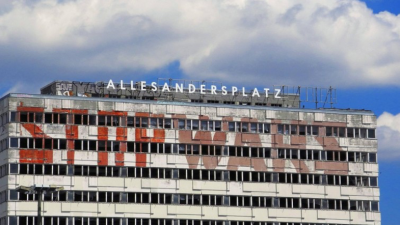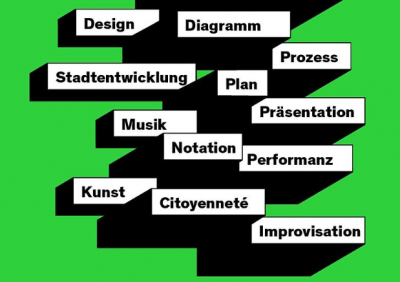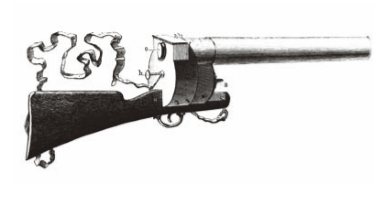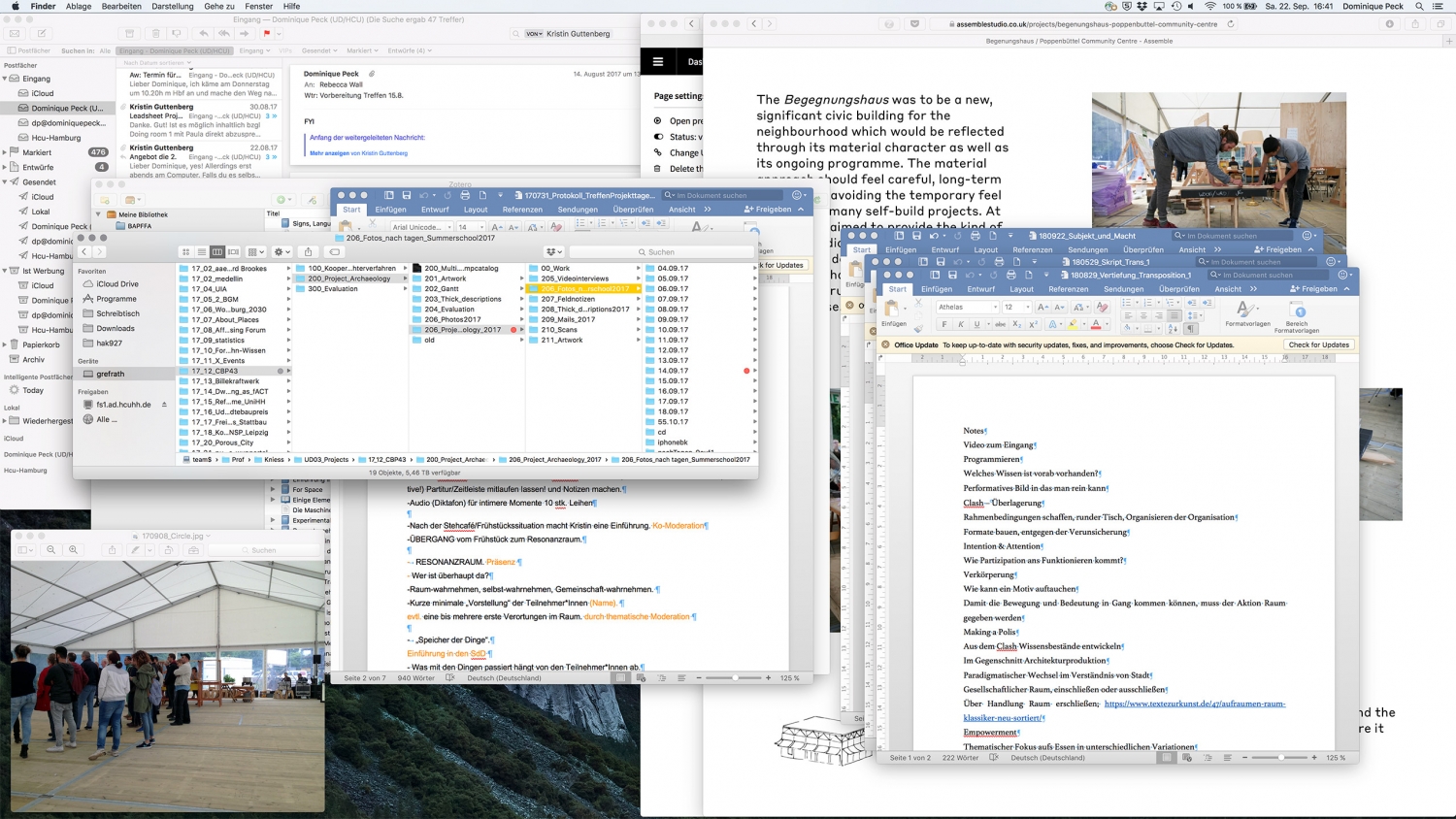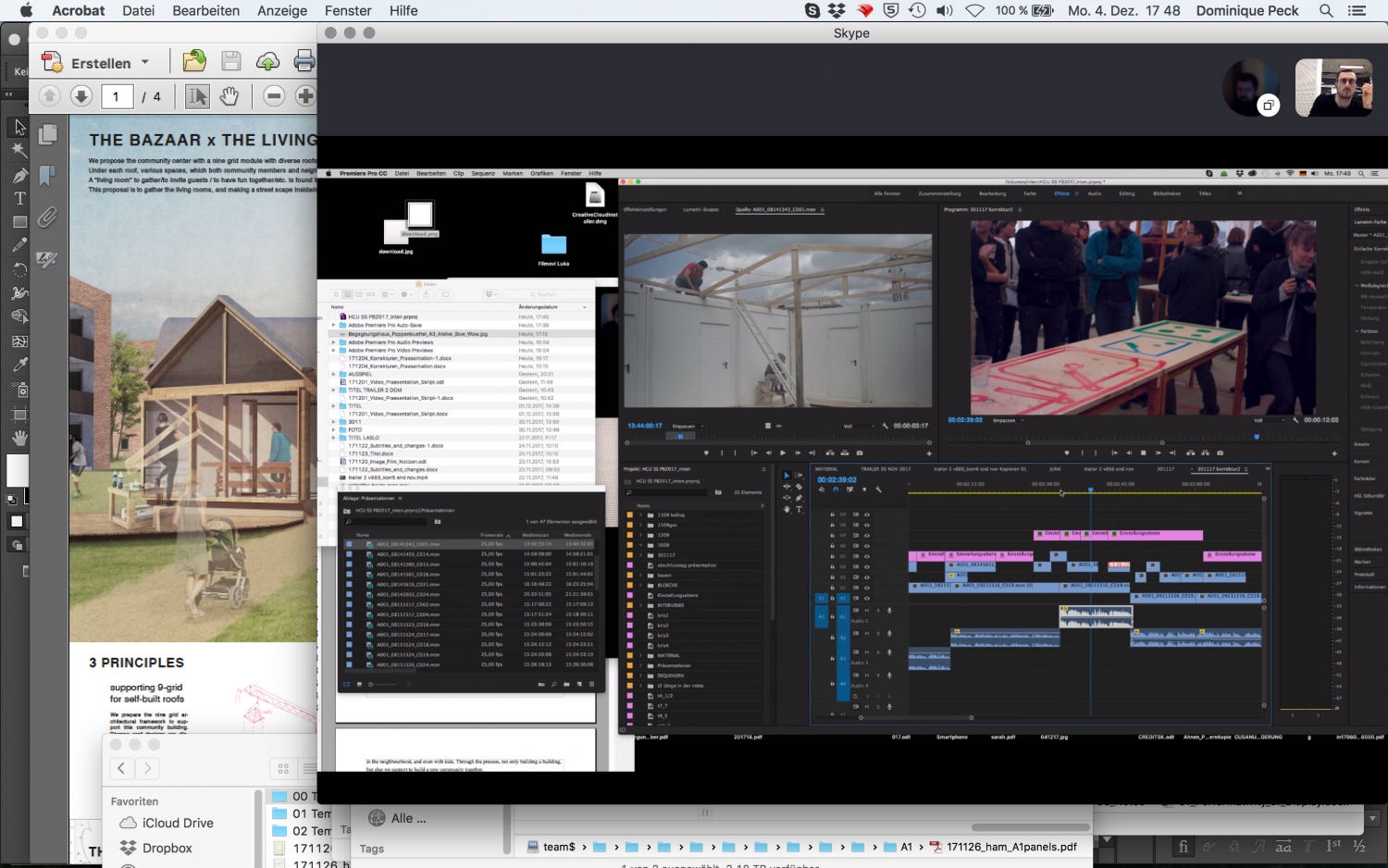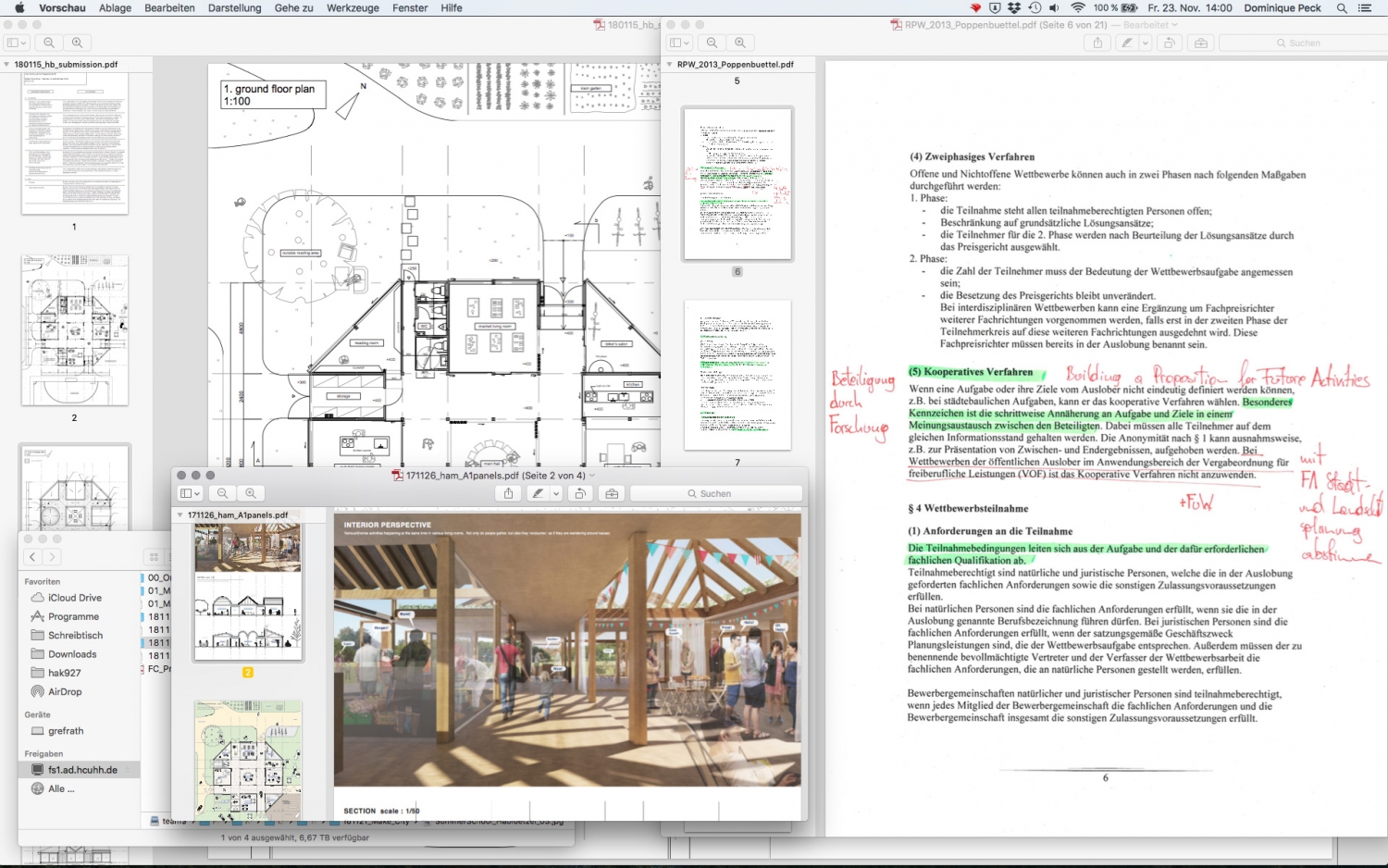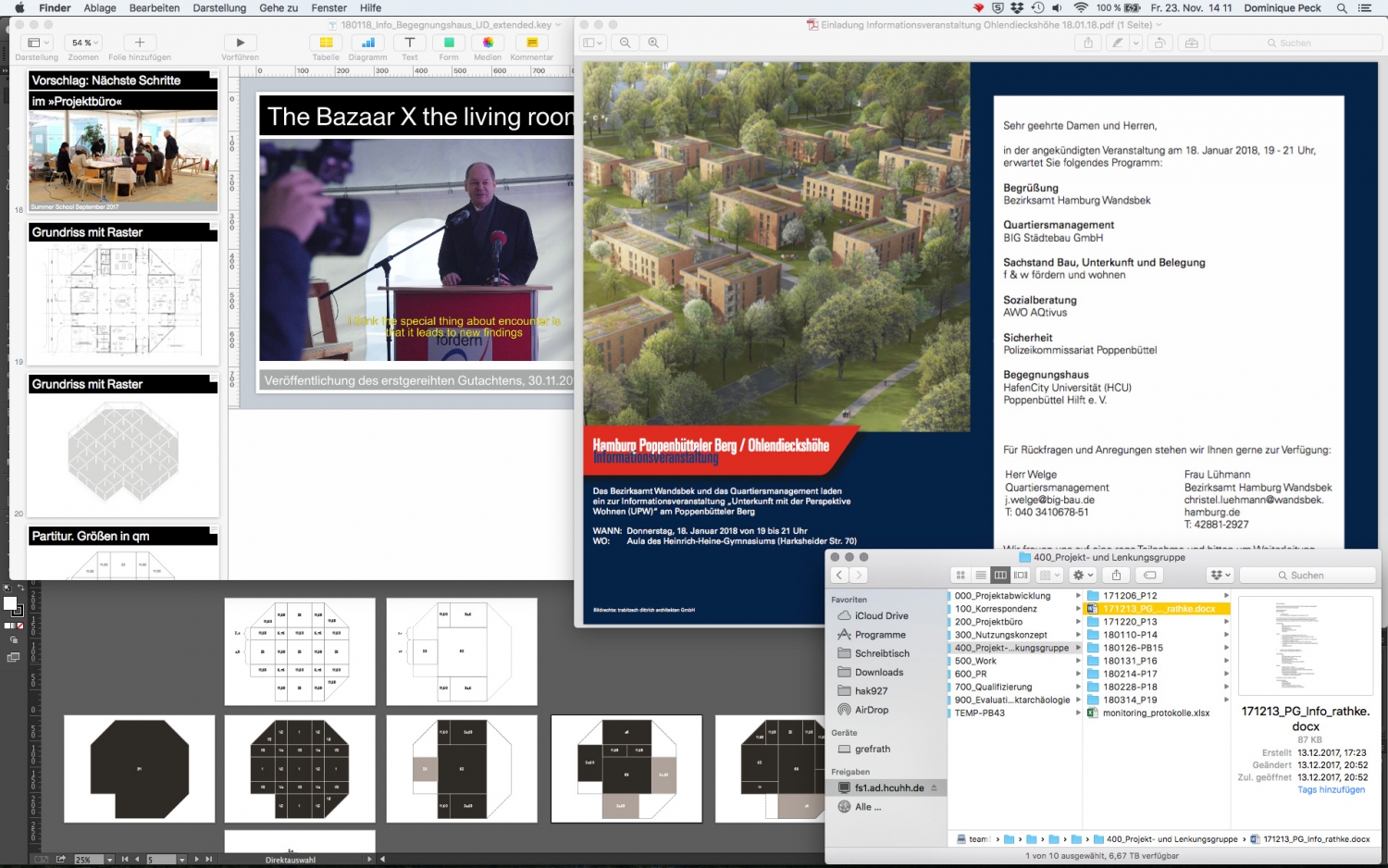Hacking, Ian. 1983. Representing and Intervening: Introductory Topics in the Philosophy of Natural Science. Cambridge, Mass, USA: Cambridge University Press.
Krampen, Martin, Klaus Oehler, und Roland Posner. 1981. Die Welt als Zeiche: Klassiker der modernen Semiotik. Berlin: Siedler Verlag.
Kriz, Jürgen, Helmut E. Lück, und Horst Heidbrink. 1990. Wissenschafts- Und Erkenntnistheorie: Eine Einführung Für Psychologen Und Humanwissenschaftler. VS Verlag für Sozialwissenschaften. //www.springer.com/de/book/9783663014959.
Lefebvre, Henri. 1991. The Production of Space. Oxford, OX, UK; Cambridge, Mass., USA: John Wiley & Sons.
Morris, Charles William. 1938. Foundations of the theory of signs. The University of Chicago press
Morris, Charles William. 1946. Signs, Language and Behavior. New York: Prentice Hall Inc.
Morris, Charles William. 1972. Writings on the General Theory of Signs. Mouton.
Ritsert, Jürgen. 2003. Einführung in die Logik der Sozialwissenschaften. Münster Westfalen: Westfälisches Dampfboot.
Rossi-Landi, Ferruccio. 1992. Between Signs and Non-Signs. John Benjamins Publishing.
Sturm, Gabriele. 2000. Wege zum Raum: Methodologische Annäherungen an ein Basiskonzept Raumbezogener Wissenschaften. Wiesbaden: Leske + Budrich Verlag.
Böhringer, Hannes. 2017. Über das Ritornell [online]. Available from: http://zkm.de/media/audio/hannes-boehringer-ueber-das-ritornell accessed 16 Apr 2017.
Deleuze, Gilles. and Guattari, Felix. 1987. A Thousand Plateaus: Capitalism and Schizophrenia. Minneapolis: University of Minnesota Press.
Dell, Christopher. 2012. Die improvisierende Organisation. Bielefeld: Transcript Verlag.
Lazzarato, Maurizio. 2006. Die Maschine. Transversal Texts.
McFarlane, Colin. 2011. “The City as Assemblage: Dwelling and Urban Space.” Environment and Planning D: Society and Space, 29 (4): 649–671.
Esposito De Vita, Gabriela., Trillo, Claudia., and Martinez- Perez, Alona., 2016. “Community planning and urban design in contested places. Some insights from Belfast.” Journal of Urban Design, 21 (3): 320–334.
Terkessidis, Mark. 2010. Interkultur. Berlin: Suhrkamp Verlag.
Latour, Bruno. 1988. Reassembling the Social: An Introduction to Actor-Network-Theory. Oxford u.a.: Oxford University Press, USA.
Kolmer, Petra, Armin Wildfeuer. 2013. Neues Handbuch philosophischer Grundbegriffe: In drei Bänden. Freiburg: Verlag Karl Alber.
Saavedra, Marco E. 2002. Die deliberative Rationalität des Politischen: Eine Interpretation der Urteilslehre Hannah Arendts. Würzburg: Königshausen u. Neumann.
Brand, Gerd. 1971. Die Lebenswelt: Eine Philosophie des konkreten Apriori. Walter de Gruyter.
Rehm, Patricia, 2008. Handeln als gelebter Wert: aus Hannah Arendts Leben und Werk ; Forschungsarbeit am Lehrstuhl Prof. Dr. Stephan Grätzel im Fachbereich Philosophie und Philologie der Johannes-Gutenberg-Universität Mainz unter dem Titel Handeln als gelebter Wert, Aspekte aus Hannah Arendts Werk im Bezug zu Johann Gottfried Herder und Maurice Blondel. BoD – Books on Demand.
Bachmann-Medick, Doris. 2017. “Cultural Turns: A Matter of Management?” In ReThinking Management, edited by Wendelin Küpers, Stephan Sonnenburg, and Martin Zierold, 31–55. Management – Culture – Interpretation. Springer Fachmedien Wiesbaden. https://doi.org/10.1007/978-3-658-16983-1_2.
Buchmann, Sabeth, Ilse Lafer, und Constanze Ruhm. 2016. Putting Rehearsals to the Test. Berlin: Sternberg Press.
Hinterwaldner, Inge. 2017. “Prolog. Modellhaftigkeit und Bildlichkeit in Entwurfsartefakten.” In Bildlichkeit im Zeitalter der Modellierung: Operative Artefakte in Entwurfsprozessen der Architektur und des Ingenieurwesens, edited by Sabine Ammon and Inge Hinterwaldner, 13–30. Paderborn: Verlag Wilhelm Fink.
Heidegger, Martin., 2006. Sein und Zeit. Tübingen: De Gruyter.
Welsch, Woflgang. 2015. “Wie kann Kunst der Wirklichkeit nicht gegenüberstehen?” inKunst und Wirklichkeit heute: Affirmation - Kritik - Transformation, edited by Lotte Everts, Johannes Lang, Michael Lüthy, and Bernhard. Schieder. Bielefeld: transcript Verlag, 179–200.
Easterling, Keller. 2014. Extrastatecraft: The Power of Infrastructure Space. London: Verso.
Eribon, Didier., 2016. Rückkehr nach Reims. Frankfurt am Main: Suhrkamp Verlag.
Althoff, Martina. 2013. Die soziale Konstruktion von Fremdenfeindlichkeit. Springer-Verlag.
Goffman, Erwin. 1980. Rahmen-Analyse: Ein Versuch über die Organisation von Alltagserfahrungen. Frankfurt am Main: Suhrkamp Verlag.
Mersch, Dieter. 2015. “The ‘Power’ of the Performative.” In S. Wolfrum and N.F. von Brandis, eds. Performative Urbanism: Generating and Designing Urban Space. Berlin: Jovis Berlin, 39–48.
Cassinari, Davide. and Moulaert, Frank. 2014. Enabling Transdisciplinary Research on Social Cohesion in the City. Routledge Handbooks Online.
Madanipour, Ali. 2013. Researching Space, Transgressing Epistemic Boundaries. International Planning Studies, 18 (3–4), 372–388.
Tuana, Nancy., 2013. Embedding philosophers in the practices of science: bringing humanities to the sciences. Synthese, 190 (11), 1955–1973.
Bröckling, Ulrich., 2007. Das unternehmerische Selbst: Soziologie einer Subjektivierungsform. Originalausgabe. Frankfurt am Main: Suhrkamp Verlag.
Eakin, Emily., 2001. Anthropology’s Alternative Radical. The New York Times, 21 Apr.
Färber, Alexa., 2009. Das unternehmerische Ethnografische Selbst. Aspekte der Intensivierung der Arbeit im ethnologisch-ethnografischen Feldforschungsparadigma. In: I. Dietzsch, W. Kaschuba, and L. Scholze-Irrlitz, eds. Horizonte ethnografischen Wissens: Eine Bestandsaufnahme. Köln: Böhlau, 178–202.
McRobbie, Angela., 2015. Be Creative: Making a Living in the New Culture Industries. 1st ed. Camcridge, UK ; Malden, MA: John Wiley & Sons.
Easterling, Keller., 2010. “The Action is the Form. ” InDérive. Understanding Stadtforschung, (40/41), 29–31.
Meyer, Friederike., 2016. "BAUWELT - Der Film als zusätzliche Visualisierung". Bauwelt, (38), 20–21.
Wainwright, Oliver., 2016. "The secret life of building sites: the show that puts cranes and cement-mixers centre stage". The Guardian, 18 Oct.
Foucault, Michel. 1966. Les Mots et les choses. Paris: INA.
Foucault – The Lost Interview, 1971.
Speaking from the Laboratory | Mark B. N. Hansen & Hans-Jörg Rheinberger, 2015.
Allen, Stan. 2000. Practice: Architecture, Technique and Representation. Amsterdam: Routledge.
Derrida, Jacques, 1998. Of Grammatology. Baltimore: Johns Hopkins University Press.
Latour, Bruno., 2007. Reassembling the Social: An Introduction to Actor-Network-Theory. Oxford u.a.: Oxford University Press, USA.
Rheinberger, Hans.-Jörg., 2006. Experimentalsysteme und epistemische Dinge: Eine Geschichte der Proteinsynthese im Reagenzglas. Frankfurt am Main: Suhrkamp Verlag.
Rheinberger, Hans.-Jörg., 2010. An Epistemology of the Concrete: Twentieth-century Histories of Life. Duke University Press.
Balke, Friedrich., Siegert, Bernhard., and Vogl, Joseph. 2016. Medien der Bürokratie: 2016. 2016. Paderborn: Fink, Wilhelm.
Mihatsch, K., 2015. Der Ausstellungskatalog 2.0: Vom Printmedium zur Online-Repräsentation von Kunstwerken. Bielefeld: transcript.
Hacking, Ian. 1983. Representing and Intervening: Introductory Topics in the Philosophy of Natural Science. Cambridge, Mass, USA: Cambridge University Press.
Menke, Christoph. 2013. Die Kraft der Kunst. Berlin: Suhrkamp Verlag.
Ammon, Sabine. 2017. “Prolog. Modellhaftigkeit und Bildlichkeit in Entwurfsartefakten.” In Bildlichkeit im Zeitalter der Modellierung: Operative Artefakte in Entwurfsprozessen der Architektur und des Ingenieurwesens, edited by Sabine Ammon and Inge Hinterwaldner, 2017. 399–426. Paderborn: Verlag Wilhelm Fink.
Callon, Michel. 2006. “Einige Elemente einer Soziologie der Übersetzung: Die Domestikation der Kammmuscheln.” In ANThology: Ein einführendes Handbuch zur Akteur-Netzwerk-Theorie, edited by Andréa Belliger and David J. Krieger, 1., Aufl., 135–174. Bielefeld: Transcript.
Rheinberger, Hans-Jorg. 2010. An Epistemology of the Concrete: Twentieth-Century Histories of Life. Duke University Press.
Tversky, Barbara. 2005. “Visuospatial Reasoning.” In The Cambridge handbook of thinking and reasoning, 209–240. New York, NY, US: Cambridge University Press.
archinet (2017) Joanne Pouzenc interviews Alexander Römer: Building togetherness through architecture (http://archinect.com/features/article/150001158/building-togetherness-through-architecture-an-interview-with-constructlab).
BeL. 2013. Grundbau und Siedler, self-build housing. IBA Hamburg (http://bel.cx/cx_Projektseiten/projects.html).
Dell, Christopher. 2017. “Project Archaeology.” In Kniess, Bernd; Christopher Dell, Jules Buchholtz, Dominique Peck (eds.). 2017. Project Management in Urban Design. Hamburg Open Online University .
Behörde für Stadtentwicklung und Wohnen. 2016. Bündnis für Quartiere Rothenburgsort
Behörde für Stadtentwicklung und Wohnen. 2015. Stromaufwärts an Elbe und Bille
Chatteron, Paul. 2010. The urban impossible. A eulogy for the unfinished city. In: City. analysis of urban trends, culture, theory, policy, action, 14(3). S. 234-244.
Easterling, Keller. 2014. Management. In: Franch, Eva (Hrsg.) et al.: Office US Agendea. 144-148
Gerlich, Wolfgang, und Emanuela Semlitsch. 2014. „Playfully creating public spaces of opportunity“. In Public Space and Relational Perspectives, herausgegeben von Sabine Knierbein und Chiara Tornaghi, 104–119. New York, N.Y: Routledge.
Kromrey, Helmut. 1998. Handlungsforschung (action research). In: Kromrey, Helmut (ed.): Empirische Sozialforschung. Opladen: Leske+Budrich. S.515-519.
Lefebvre, Henri. 2003. Urban Form. In The Urban Revolution. Minneapolis: The University of Minnesota Press.
Martinez, Sol Perez. 2018. „Urban Studies Centres 1968-1988. Mediating Architecture and the Built Environment through Education.“ In Architecture Connects, 353–363. Oxford Brookes University, UK.
Mitchell, Don. 1995. „The End of Public Space? People's Park, Definitions of the Public, and Democracy,“ Annals of the Association of American Geographers, 85:1, 108-133
Petrescu, Donia and Constantin Petcou. 2014. „Micropolitics of Reclaiming the City“, In: Laister, Judith et. al. (ed.): The Art of Urban Intervention. Graz: Löcker Verlag, p. 172-187.
Schneider, Tatjana. 2015. „Tod dem PROJEKT! Lang lebe der systemische Wandel“. dérive – Zeitschrift für Stadtforschung 61: 27–31.
Tornaghi, Chiara. 2014. „The relational ontology of public space and action-oriented pedagogy in action. Dilemmas of professional ethics and social justice“. In Public Space and Relational Perspectives: New Challenges for Architecture and Planning, herausgegeben von Sabine Knierbein und Chiara Tornaghi, 17–41. New York, N.Y: Routledge.
Akrich, Madeleine and Bruno Latour. 2006. Zusammenfassung einer zweckmäßigen Terminologie für die Semiotik menschlicher und nicht-menschlicher Konstellationen. In Andrea Belliger and David Krieger, ANThology. Ein einführendes Handbuch zur Akteur- Netzwerk-Theorie. 407–428. Bielefeld: Transcript.
Aktinson, Paul, Amanda Coffey, and Sara Delamont. 2003. Key Themes in Qualitative Research: Continuities and Change. Walnut Creek, CA: Altamira Press.
Burckhardt, Lucius. 1970. “Politische Entscheidungen der Bauplanung.” In J. Fezer & M. Schmitz. Lucius Burckhardt. Wer plant die Planung? Architektur, Politik, Mensch. 45–48. Berlin.
Clarke, Adele. 2012. Situationsanalyse: Grounded Theory nach dem Postmodern Turn Wiesbaden: VS Verlag für Sozialwissenschaften.
Eisenman, Peter, Steele, B., & Rem Koolhaas. 2010. AA Worlds One: Supercritical: Peter Eisenman Meets Rem Koolhaas. London.
Foucault, Michel. 2008. Dispositive der Macht: Über Sexualität, Wissen und Wahrheit. Berlin: Merve.
Fezer, Jesko. 2007. “Planungsmethodik gestern.” In Arno Brandlhuber. a42.org / AdBK Nürnberg. Disko 6.
Guggenheim, Michael. 2017. „Was macht die Planung? Theoretische Lockerungen mit ANT“. sub\urban. zeitschrift für kritische stadtforschung 5 (1/2): 147–152.
Hiernaux-Nicolas, Daniel. 2004. “Henri Lefebvre: del Espacio Absoluto al Espacio Diferencial.” Veredas, 8, 11–25.
Latour, Bruno. 2002. Die Hoffnung der Pandora. Untersuchungen zur Wirklichkeit der Wissenschaft. Frankfurt am Main: Suhrkamp.
———. 2006a. “Die Macht der Assoziation.” In Andrea Belliger and David Krieger. ANThology. Ein einführendes Handbuch zur Akteur-Netzwerk-Theorie. 195–212. Bielefeld: Transcript.
———. 2006b. ”Sozialtheorie und die Erschforschung computerisiterter Arbeitsumgebungen.” In Andrea Belliger and David Krieger. ANThology. Ein einführendes Handbuch zur Akteur- Netzwerk-Theorie. 529–544. Bielefeld: Transcript.
———. 2006c. Über technische Vermittlung. Philosophie, Soziologie, Genealogie. In Andrea Belliger and David Krieger, ANThology. Ein einführendes Handbuch zur Akteur-Netzwerk- Theorie. 259–307. Bielefeld: Transcript.
Lefebvre, Henri. 1991. The Production of Space. Oxford, OX, UK; Cambridge, Mass., USA: John Wiley & Sons.
Adams, Tony E. 2008. “A Review of Narrative Ethics.” Qualitative Inquiry 14 (2): 175–194. doi:10.1177/1077800407304417.
Agee, Jane. 2009. “Developing qualitative research questions: a reflective process.” International Journal of Qualitative Studies in Education 22 (4): 431–447.
AHO e.V., Eds. 2006. “Interdisziplinäres Projektmanagement für PPP-Hochbauprojekte.” AHO Schriftenreihe 22. Berlin: Bundesanzeiger Verlag.
Creswell, John. 2007. Qualitative inquiry and research design. Thousand Oaks: Sage.
Lassiter, Luke Eric. 2005. The Chicago Guide to Collaborative Ethnography. Chicago: University of Chicago Press. https://www.press.uchicago.edu/ucp/books/book/chicago/C/bo3632872.html.
Stringer, Ernest. 2007. Action Research. Los Angeles: Sage. https://us.sagepub.com/en-us/nam/action-research/book236795.
Easterling, Keller. 2014. Subtraction. Critical Spatial Practice 4. Berlin: Sternberg Press.
Bonacker, Thorsten. 2002. “Die Gemeinschaft der Dekonstruktion. Zum normativen Gehalt liberaler Gemeinschaften.” In Philosophie der Dekonstruktion: Zum Verhältnis von Normativität und Praxis, edited by Christoph Menke and Andrea Kern, 264–88. Frankfurt am Main: Suhrkamp Verlag.
Derrida, Jacques. 1994. “Roundtable on Translation.” In Mark Wigley, Architektur und Dekonstruktion: Derridas Phantom. Basel: Birkhäuser Verlag.
Derrida, Jacques. 1986. Französische Philosophen im Gespräch. (F. Rötzer, Interviewer) Klaus Boer Verlag.
Derrida, Jacques. 1981. “Semiology and grammatology, interview with Julia Kristeva Extract from Positions.” In Positions, 15–36. Chicago: University of Chicago Press.
Derrida, Jacques. 1981a. Platon ́s Pharmacy. Dissemination. Chicago: University of Chicago Press.
Derrida, Jacques. & Engelmann, P. 1987. Randgänge der Philosophie. Wien: Semiotica Austriaca.
Kimmerle, Heinz. 2008. Jacques Derrida. Hamburg: Junius.
Wigley, Mark. 1994. Architektur und Dekonstruktion: Derridas Phantom. Basel: Birkhäuser Architektur Bibliothek.
Wetzel, Mark. 2010. Derrida. Grundwissen Philosophie. Stuttgart: Reclam, Philipp, jun. GmbH, Verlag.
Holert, Tom. 2012. “Formsachen. Netzwerke, Subjektivität, Autonomie.” In Kreation und Depression: Freiheit im gegenwärtigen Kapitalismus, edited by Christoph Menke and Juliane Rebentisch., 129–148. Berlin: Kulturverlag Kadmos.
Latour, Bruno. 2004. “Why Has Critique Run out of Steam? From Matters of Fact to Matters of Concern.” Critical Inquiry 30 (2): 225–248. doi:10.1086/421123.
Colomina, Beatriz. 2011. “Mourning the Suburbs: Learning from Levittown.” Public: Art | Culture | Ideas 43. http://www.publicjournal.ca/43-suburbs-leona-drive-catalogue/.
Lynch, Kevin. 1960. Image of the City. MIT Press.
Ruhl, Carsten. 2006. „Der romantische Ikonograph“. archplus, Wohnen – wer mit wem, wo, wie, warum, 176/177: 4–5.
Scott Brown, Denise. 2016. Learning from “Learning from Las Vegas” with Denise Scott Brown, Part I: The Foundation Interview von Nicholas Korody. https://archinect.com/features/article/149970924/learning-from-learning-from-las-vegas-with-denise-scott-brown-part-i-the-foundation.
Shelton, Jim. 2015. „The May Day Rally, in Words and Pictures“. YaleNews. 29. April 2015. https://news.yale.edu/2015/04/29/may-day-rally-words-and-pictures.
Speaks, Michael, Margaret Crawford, und Doug Kelbaugh. 2005. Everyday Urbanism: Michigan Debates on Urbanism I. Edited by Rahul Mehrotra. Ann Arbor, Mich: University of Michigan, Taubman College of Architecture and Urban Planning.
Venturi, Robert, Steven Izenour, und Denise Scott Brown. 1977. Learning from Las Vegas - Revised Edition: The Forgotten Symbolism of Architectural Form. Revised edition edition. Cambridge, Mass.: The MIT Press.
Wirth, Louis. 1938. “Urbanism as a Way of Life.” American Journal of Sociology 44 (1): 1–24.
Speaks, Michael, Margaret Crawford, and Doug Kelbaugh. 2005. Everyday Urbanism: Michigan Debates on Urbanism I. Edited by Rahul Mehrotra. Ann Arbor, Mich: University of Michigan, Taubman College of Architecture and Urban Planning.
AHO e.V., Hrsg. 2006. “Interdisziplinäres Projektmanagement für PPP-Hochbauprojekte.” AHO Schriftenreihe 22. Berlin: Bundesanzeiger Verlag.
Kochendörfer, Bernd, Jens H. Liebchen, and Markus G. Viering. 2018. “Werkzeuge des Projektmanagements.” In Bau-Projekt-Management. Grundlagen und Vorgehensweisen, 247–271. Leitfaden des Baubetriebs und der Bauwirtschaft. Wiesbaden: Springer Vieweg. https://link.springer.com/book/10.1007%2F978-3-8348-2245-1#about.
Latour, Bruno. 2004. “Why Has Critique Run out of Steam? From Matters of Fact to Matters of Concern.” Critical Inquiry 30 (2): 225–248. doi:10.1086/421123.
Hollis, Martin. 1994. The Philosophy of Social Science: An Introduction. Cambridge England ; New York, NY, USA: Cambridge University Press.
Massey, Doreen. 2005. For Space. London ; Thousand Oaks, Calif: SAGE Publications Ltd.
Bourdieu, Pierre. 1987. The subtle differences: critique of social judgement. Frankfurt am Main: Suhrkamp.
Dell, Christopher. 2016. Epistemology of the city: improvisational practice and creative diagrammatics in an urban context. Urban studies. Bielefeld: transcript.
Jaeggi, Rahel. 2016. What about Hannah Arendt? Hamburger Institut für Sozialforschung. Hamburg: Hamburger Edition HIS.
Arendt, Hannah. 2016. Vita activa oder Vom tätigen Leben. Piper 3623. München Berlin Zürich: Piper.
Krämer, Sybille. 1998. “Das Medium als Spur und als Apparat”. In Medien, Computer, Realität. Wirklichkeitsvorstelllungen und neue Medien, 73–94. Frankfurt a.M.: Suhrkamp Verlag.
Latour, Bruno. 1996. Berliner Schlüssel. Erkundungen eines Liebhabers der Wissenschaften. Berlin: Akademie.
Loon, Joost van. 2008. Media Technology. Critical Perspective. Maidenhead: Open University Press.
Passoth, Jan-Hendrik. 2010. “Die Infrastruktur der Blogosphäre als Wandel von Interobjektivitätsformen.” In Medienwandel als Wandel von Interaktionsformen, 211–29. Wiesbaden: VS Verlag für Sozialwissenschaften.
Wieser, Matthias. 2012. Das Netzwerk von Bruno Latour: Die Akteur-Netzwerk-Theorie zwischen Science & Technology Studies und poststrukturalistischer Soziologie. Bielefeld: Transcript.
Abram, Simone, and Gisa Weszkalnys. 2013. Elusive Promises: Planning in the Contemporary World. Berghahn Books.
AHO e.V., Hrsg. 2006. Interdisziplinäres Projektmanagement für PPP-Hochbauprojekte. AHO Schriftenreihe 22. Berlin: Bundesanzeiger Verlag.
Easterling, Keller. 2018. Medium Design. Moscow: Strelka Press.
Easterling, Keller. 2014. „Management“. In Office US Agenda, edited by Eva Franch i Gilabert, Amanda Reeser Lawrence, Ana Miljački, and Ashley Schafer, 144–148. Zürich: Lars Müller Publishers.
Foucault, Michel. 2015. „Subjekt und Macht“. In Ästhetik der Existenz, 81–104. Frankfurt am Main: Suhrkamp Verlag.
Millard, Bill. 2004. „Banned words!“ In Content, edited by Rem Koolhaas, 88–91. Köln: Taschen Verlag.
Wieser, Matthias. 2012. Das Netzwerk von Bruno Latour: Die Akteur-Netzwerk-Theorie zwischen Science & Technology Studies und poststrukturalistischer Soziologie. Bielefeld: Transcript.
Zeiderman, Austin. 2018. „Beyond the Enclave of Urban Theory“. International Journal of Urban and Regional Research. doi:10.1111/1468-2427.12661.
Zolotoev, Timor, und Yulia Gromova. 2018. „Power of Medium Design: Upsetting the Loop“. Strelkamag. https://strelkamag.com/en/article/power-of-medium-design-upsetting-the-loop.
Hermanns, Harry. 2000. „Interviewen als Tätigkeit“. In Qualitative Forschung: Ein Handbuch, edited by Uwe Flick, Ernst von Kardorff, and Ines Steinke, 360–67. Reinbek bei Hamburg: Rowohlt.
Ostrom, Elinor. 1996. “Crossing the Great Divide: Coproduction, Synergy, and Development.” World Development 24 (6): 1073–87.
Parks, Roger B., Paula C. Baker, Larry Kiser, Ronald Oakerson, Elinor Ostrom, Vincent Ostrom, Stephen L. Percy, Martha B. Vandivort, Gordon P. Whitaker, und Rick Wilson. 1981. “Consumers as Coproducers of Public Services: Some Economic and Institutional Considerations.” Policy Studies Journal 9 (7): 1001–11. https://doi.org/10.1111/j.1541-0072.1981.tb01208.x.
Zimmermann, Karsten. 2017. Relevanz, Wandel und Anforderungen wissenschaftlicher Politikberatung in der Raumplanung. disP - The Planning Review 53, Nr. 4 (2. October): 21–32. doi:10.1080/02513625.2017.1414478, .
Vogl, Susanne. “Gruppendiskussionen.” In Handbuch Methoden der Empirischen Sozialforschung, edited by Nina Baur and Jörg Blasius, 581–86. VS Verlag für Sozialwissenschaften, 2014. //www.springer.com/de/book/9783531178097.
Breckner, Ingrid, Christopher Dell, Alexa Färber, Bernd Kniess, Dominique Peck und Dorothea Wirwall. 2019. ‘Understanding Urban Design.’ in: Tom Paints the Fence. Re-negotiating Urban Design, ed. by Bernd Kniess, Christopher Dell, and Dominique Peck. Hamburg: Spector Books.
Latour, Bruno. 2007. Reassembling the Social: An Introduction to Actor-Network-Theory. New Ed. Oxford u.a.: Oxford University Press, USA.
Mersch, Dieter. 2015. „The ‚Power‘ of the Performative“. In Performative Urbanism: Generating and Designing Urban Space, herausgegeben von Sophie Wolfrum und Nikolai Frhr von Brandis, 39–48. Berlin: Jovis Berlin.
Wark, McKenzie. 2017. „Bruno Latour: Occupy Earth“. Versobooks.com. 5. Oktober 2017.
Schneider, Tatjana. 2015. „Tod dem Projekt! Lang lebe der systemische Wandel“. dérive – Zeitschrift für Stadtforschung 61: 27-31
Menu, Flavien, Hrsg. 2018. „Assemble, REAL, Ateliermob“. In New Commons for Europe, 100-129. Leipzig: Spector Books.
Dell, Christopher, Vera Baur, and Ruedi Baur. 2016. Die Stadt als offene Partitur: Design, Diagramm, Prozess, Stadtentwicklung, Plan, Präsentation, Musik, Notation, Performanz, Kunst, Citoyenneté, Improvisation. Reihe Design2context 5. Montreuil: Civic City. 51-54.
Dell, Christopher. 2011. Replaycity: Improvisation als urbane Praxis. Berlin: Jovis. 187-199.
Yaneva, A., Latour, B., & Geiser, R. (Ed.) (2008). Give me a Gun and I will Make All Buildings Move: An ANT’s View of Architecture. In Explorations in Architecture: Teaching, Design, Research (pp. 80-89). Basel: Birkhäuser Verlag.
